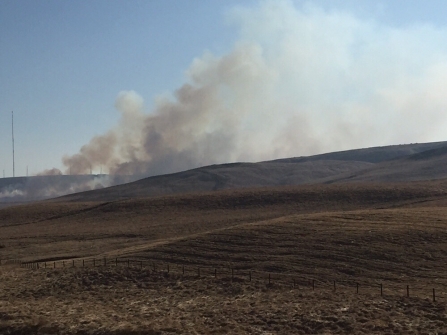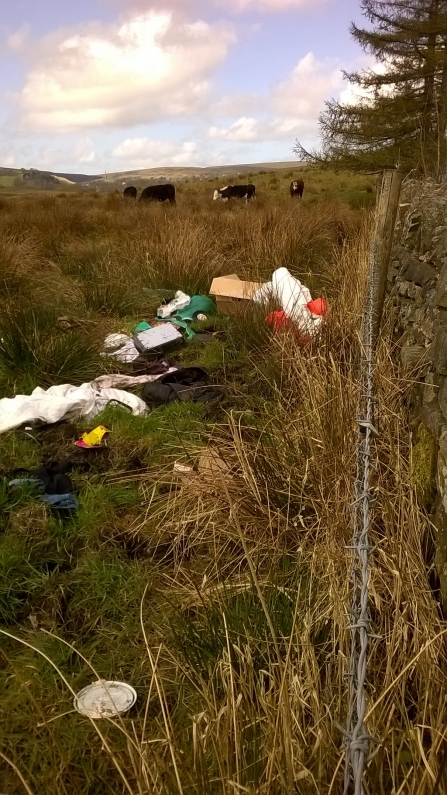Over recent weeks we've had a number of reports of fly tipping on our nature reserves and in other beauty spots across Lancashire, Manchester and North Merseyside. And after arsonists set fire to a large area of the West Pennine Moors, we're asking everyone to protect their local wild areas, particularly during the lockdown.
Dismay at rise in littering and vandalism

Fire in progress on Darwen Moor. Image by Alan Wright
Our Director of Conservation, Tim Mitcham, said:
“We have found fly tipping at our Longworth Clough Nature Reserve and I have heard of other cases on the West Pennine Moors.
“The recent fire on Horden Stoops and down towards Ward’s Reservoir, close to Belmont, also caused significant damage over three square kilometres.
“This area is a Site of Special Scientific Interest and is protected because of its peatland landscape and distinctive wildlife.”
Indeed, disturbances to this area will affect thousands of different species in the coming months, particularly during the nesting season. Ground-nesting birds actively nesting include curlew, snipe, lapwing, woodcock and black headed gull.

Fly tipping at Longworth Clough. Image by Phil Reddell
Tim said: “We have seen increased leisure activity at our urban edge reserves: places like Lunt Meadows, Heysham Moss and Foxhill Bank are seeing a lot of activity during the lockdown, particularly from dog walkers. Hopefully, the vast majority of users are doing so respectfully and keeping dogs on leads and to the paths, as nesting birds are easily disturbed at this time and wildflowers easily damaged.
“We have cleared away the rubbish at Longworth Clough and, hopefully, with sites being closed, it will not become a regular thing.”
While there are restrictions on people travelling to beauty spots and many nature reserves, like Brockholes and Mere Sands Wood, are closed to the public, we're still expecting a large influx of visitors as the sunny days continue during lockdown.
Campaign Manager, Alan Wright, said: “Isolated areas have become more isolated because of the lockdown and a couple of selfish people are using this as an excuse to dump their rubbish or cause damage.
“These areas are important for wildlife and for future generations of people. Surely, they realise that if they destroy these areas, there will be fewer beautiful wildlife refuges, plants and creatures for their children and grandchildren to experience.
“If anyone sees something suspicious, please do not approach the people involved, but do contact the police or the local land owner.”
We're recommending that people go out to their own local wild areas, close to their homes, without travelling too far.
Tim added: “A benefit of the lockdown is that these areas are being left alone, so when we get out there after restrictions are lifted, wildlife should be flourishing.
“All we are asking is that people respect the countryside and enjoy their own local wildlife, without spoiling it for others.”
We're continuing to monitor our nature reserves over the lockdown. These reserves are part of the UK’s Nature Recovery Network, ensuring wildlife has safe places to live, breed and thrive.
